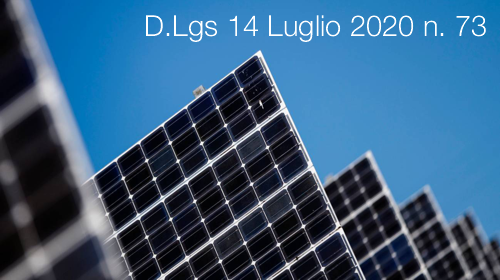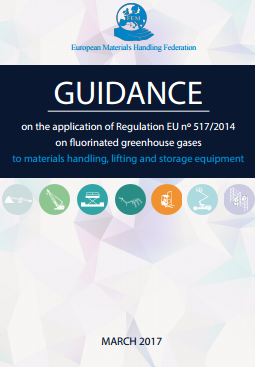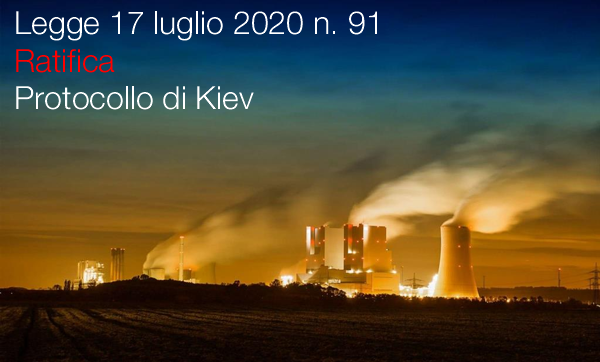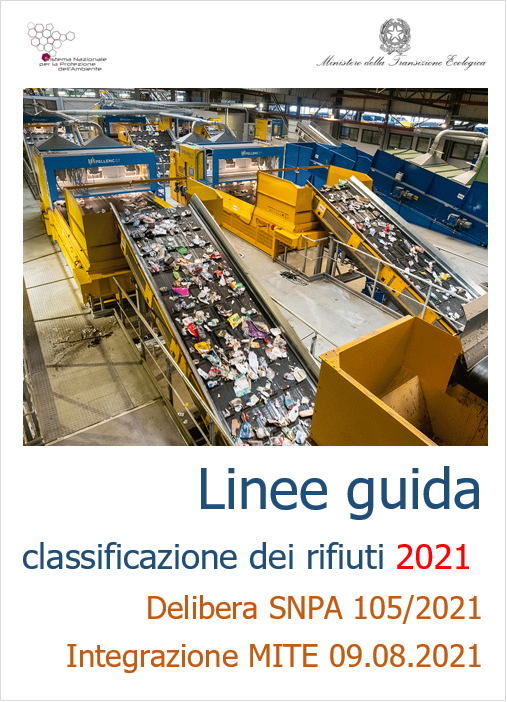Decreto Legislativo 14 luglio 2020 n. 73

Decreto Legislativo 14 luglio 2020 n. 73
Attuazione della direttiva (UE) 2018/2002 che modifica la direttiva 2012/27/UE sull'efficienza energetica.
(GU Serie Generale n.175 del 14-07-2020)
Entrata in v...

Guidance on the application of Regulation (EU) n° 517/2014 on fuorinated greenhouse gases to materials handling, lifting and storage equipment
This publication is only for guidance and gives an overview regarding the assessment of “Guidance on the application of Regulation EU n° 517/2014 on fuorinated greenhouse gases to materials handling, lifting and storage equipment”. It shall not be considered as a binding interpretation of the existing legal framework. It neither claims to cover any aspect of the matter, nor does it refect all legal aspects in detail.
It is not meant to, and cannot, replace own knowledge of the pertaining directives, laws and regulations. Furthermore the specifc characteristics of the individual products and the various possible applications have to be taken into account. This is why, apart from the assessments and procedures addressed in this guide, many other scenarios may apply. Manufacturer’s instructions and manuals must always be respected
Regulation (EU) No 517/2014 deals with fuorinated greenhouse gases, which are commonly used as refrigerants, notably in air conditioning and refrigeration systems. Since the majority of these gases present a high global warming potential (GWP), Regulation 517/2014 (“the F-gas Regulation”) aims at reducing emissions of these gases through a variety of measures, among which some are related to the conditions for the placing on the market of certain types of products or equipment containing or relying upon fuorinated greenhouse gases (bans) and quantitative limits for the placing on the market of hydrofuorocarbons (phase-down).
Certain types of materials handling equipment integrate air conditioning equipment, generally in the cabin of the operator of the machine. This is notably the case of some industrial trucks (e.g. counterbalanced forklift trucks, telehandlers) and cranes (e.g. tower cranes, mobile cranes).
This type of non-hermetically sealed mobile air conditioning system must be compliant with the requirements set by the F-gas Regulation. This guidance note provides information on the requirements that have to be fulflled by manufacturers of materials handling equipment that integrates mobile air conditioning systems in order to comply with the F-gas Regulation.
FEM 2017
Gas Floururati: Registro dell'Apparecchiatura

Attuazione della direttiva (UE) 2018/2002 che modifica la direttiva 2012/27/UE sull'efficienza energetica.
(GU Serie Generale n.175 del 14-07-2020)
Entrata in v...

Ratifica ed esecuzione del Protocollo sui registri delle emissioni e dei trasferimenti di sostanze inquinanti, fatto a Kiev il 21 maggio 2003.
(GU n.194 del 04-08-2020)
Entrat...

ID 14356 | 21.08.2021
Delibera SNPA del 18 maggio 2021 n.105
Integrazione sottoparagrafo 3.5.9
Delibera del Consiglio del Sistema Nazional...
Testata editoriale iscritta al n. 22/2024 del registro periodici della cancelleria del Tribunale di Perugia in data 19.11.2024